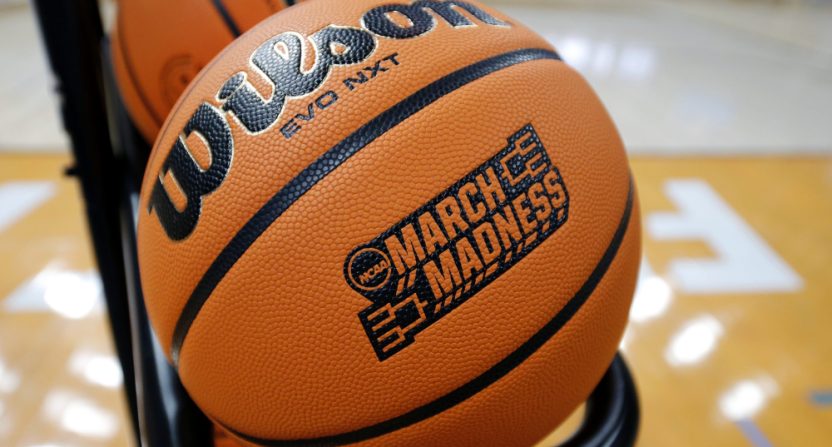There’s nothing college sports fans love more than complaining about college sports. Grousing about perceived slights and real injustices is a huge reason for the popularity. And sometimes the powers that be should pay more attention to their constituency.
The expanded College Football Playoff has received mixed reviews. Feel free to whine about the format, seedings, or early-round results that have made this postseason bloated and the regular season less special. Let this be a warning to the NCAA as it contemplates expanding March Madness.
The NCAA Tournament is one of the few universally loved postseasons. It was perfect as a 64-team field. It’s still great as a 68-team field. Pushing for the inclusion of more schools would further dilute a playoff that never needed fixing in the first place. And yet, the NCAA seems hellbent on forcing change down our throats.
In June, the NCAA discussed possible scenarios, including adding four to eight schools. The field last expanded in 2011 to its current format with these games called “play-ins.” It has since been rebranded as the First Four in Dayton, Ohio. If the NCAA makes another dramatic change, the earliest it could occur is 2025-26
The conversation about expansion will ramp up as we get closer to March. The number “96” has been floated in the media for a while. However, NCAA president Charlie Baker disputed that number two months ago when he appeared on the Dan Patrick Show: “The committees have some work to do here, but I think there’s room to go to something like 72 or 76.”
The only people who love tournament expansion are coaches, school administrators, and broadcast executives. For coaches, it provides more job security. For administrators, it provides more possible revenue. For executives, it provides more product to put on their networks. The NCAA is in the middle of an 8-year, $8.8 billion contract extension with CBS and Turner that runs through 2032. Expansion is simply about business and has little to do with the quality.
As much as college football fans complain, they are united about protecting high standards. They don’t want a watered-down version of their sport. That’s why there was such an uproar. Imagine how much louder it will be if the CFP increases the field to 14 schools in 2026. On a recent episode of Pardon the Interruption, Michael Wilbon called out the CFP committee and ESPN for its role in expansion describing it as a “greed play.”
NCAA tournament expansion is also a greed play. The conference commissioners and coaches will argue that this is about more opportunities. There are currently 352 Division I men’s basketball programs—that doesn’t include several schools reclassifying from Division II.
“We talk about the student-athlete experience, and the only thing that really, in my opinion, that has not changed is expanding the tournament,” North Carolina State coach Kevin Keatts said last March. “And I don’t have a number. I don’t know what that should be. But I do think we should give more schools opportunities to be able to get in the tournament.”
More opportunity equals more money because the more games a team wins in the tournament, the more money that school’s conference gets. It’s a win for the business of March Madness. But at what cost to the quality of March Madness?
The fans of college basketball need to be as loud as the fans of college football. Resisting change to the greatest postseason tournament is something worth complaining about.
